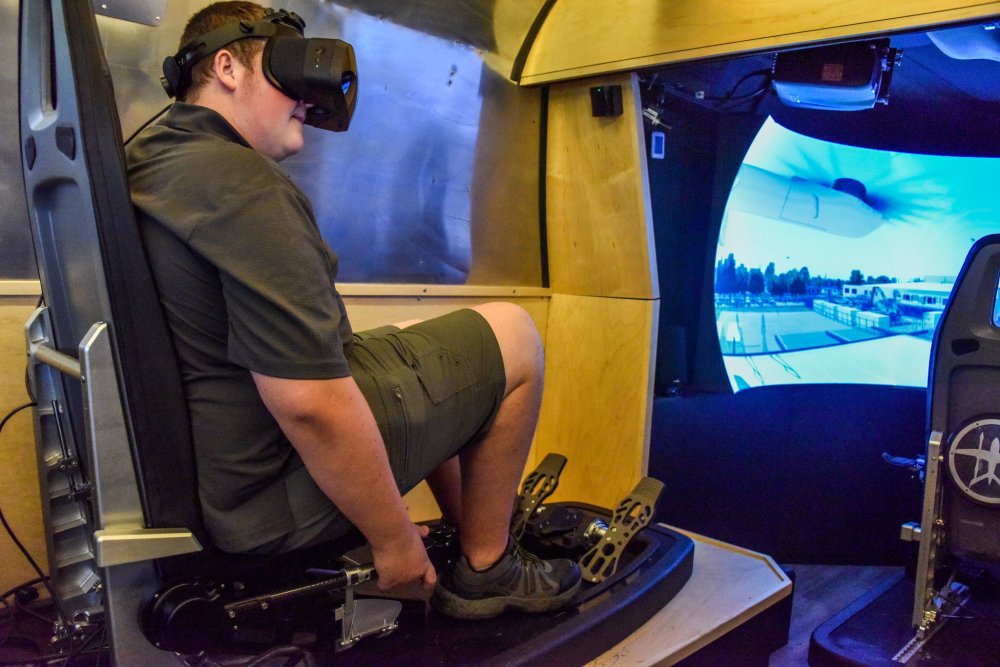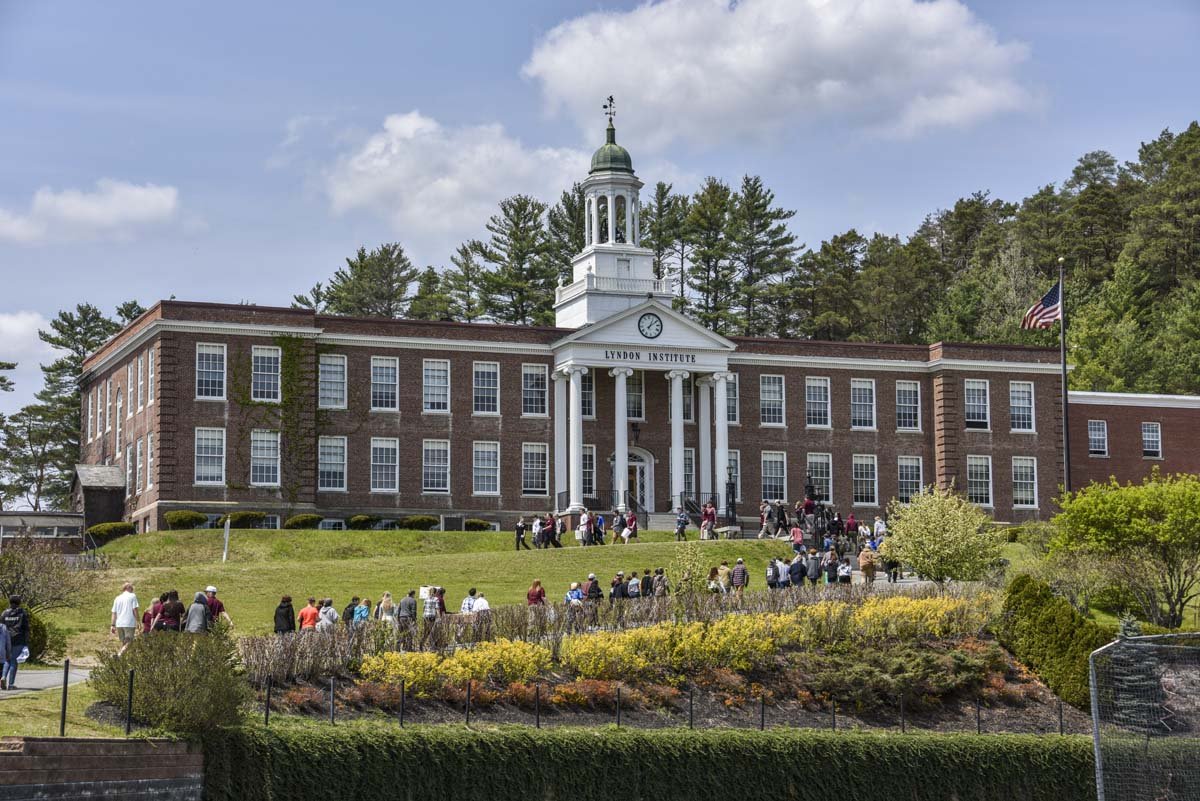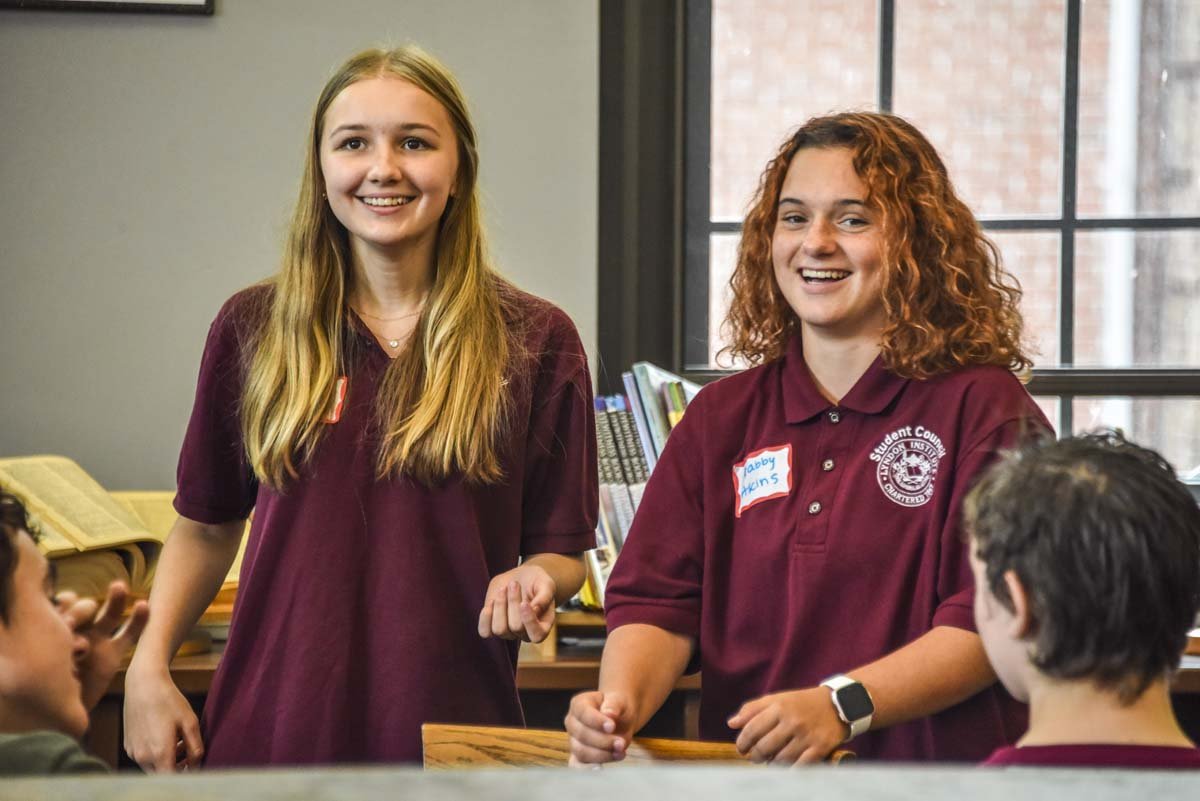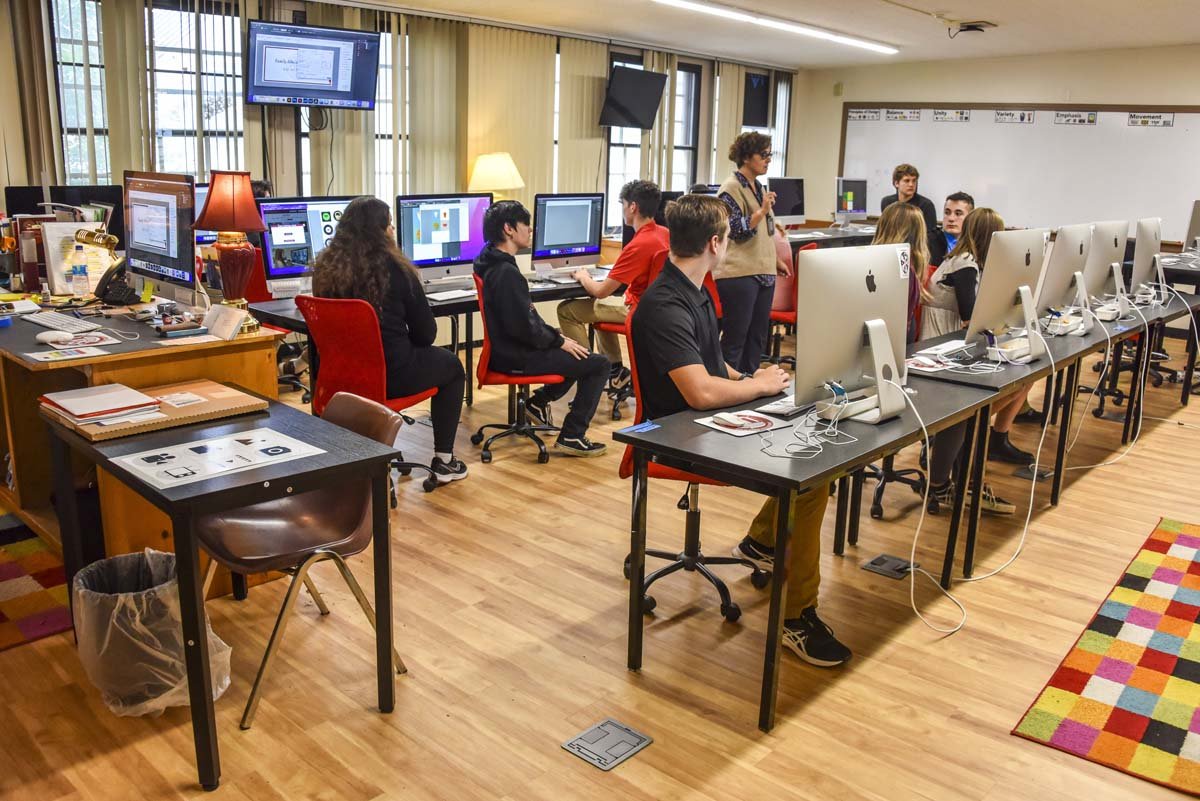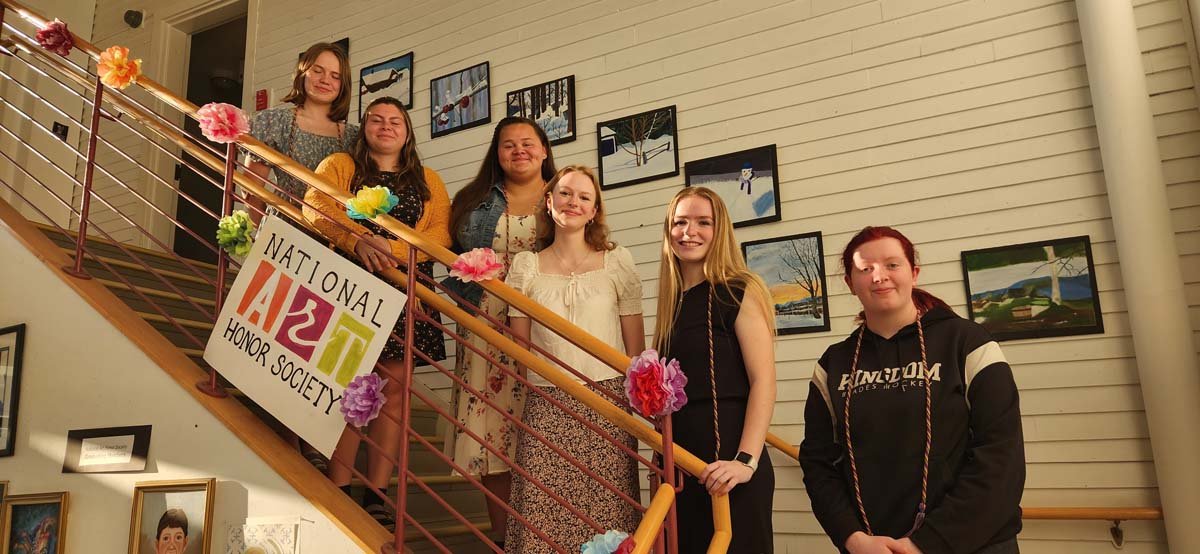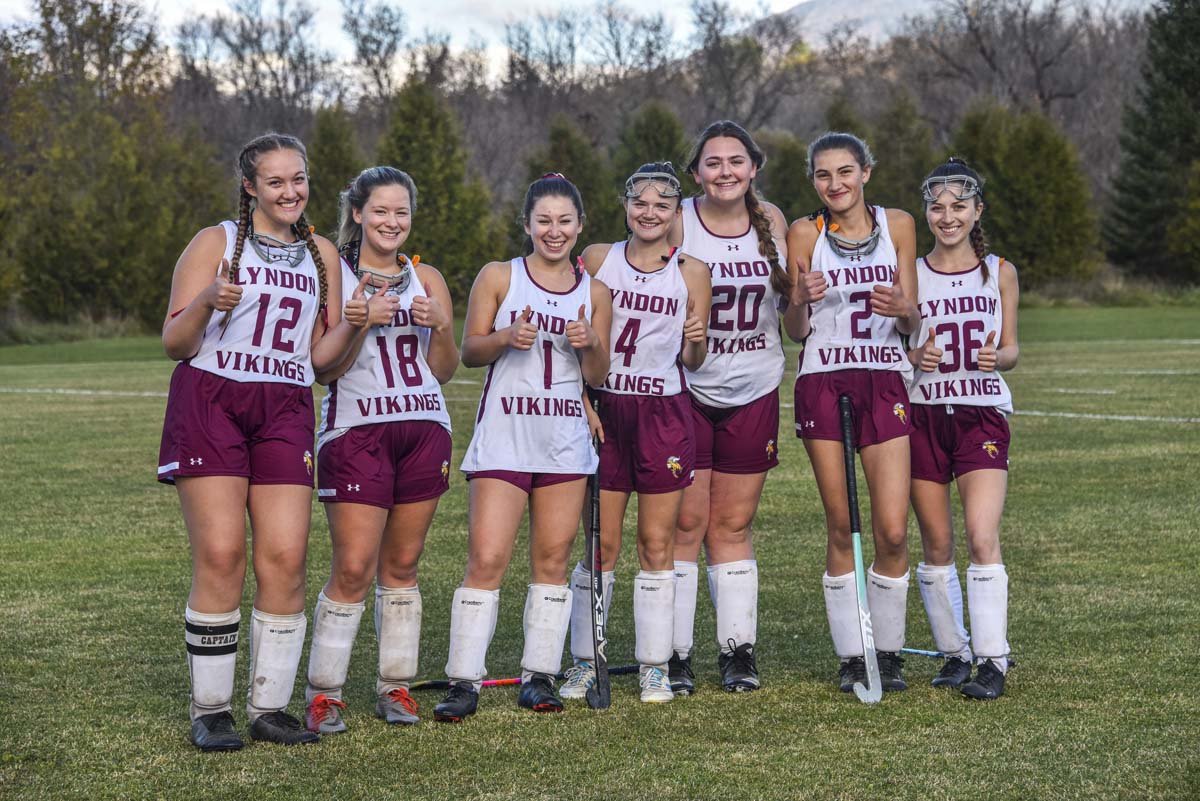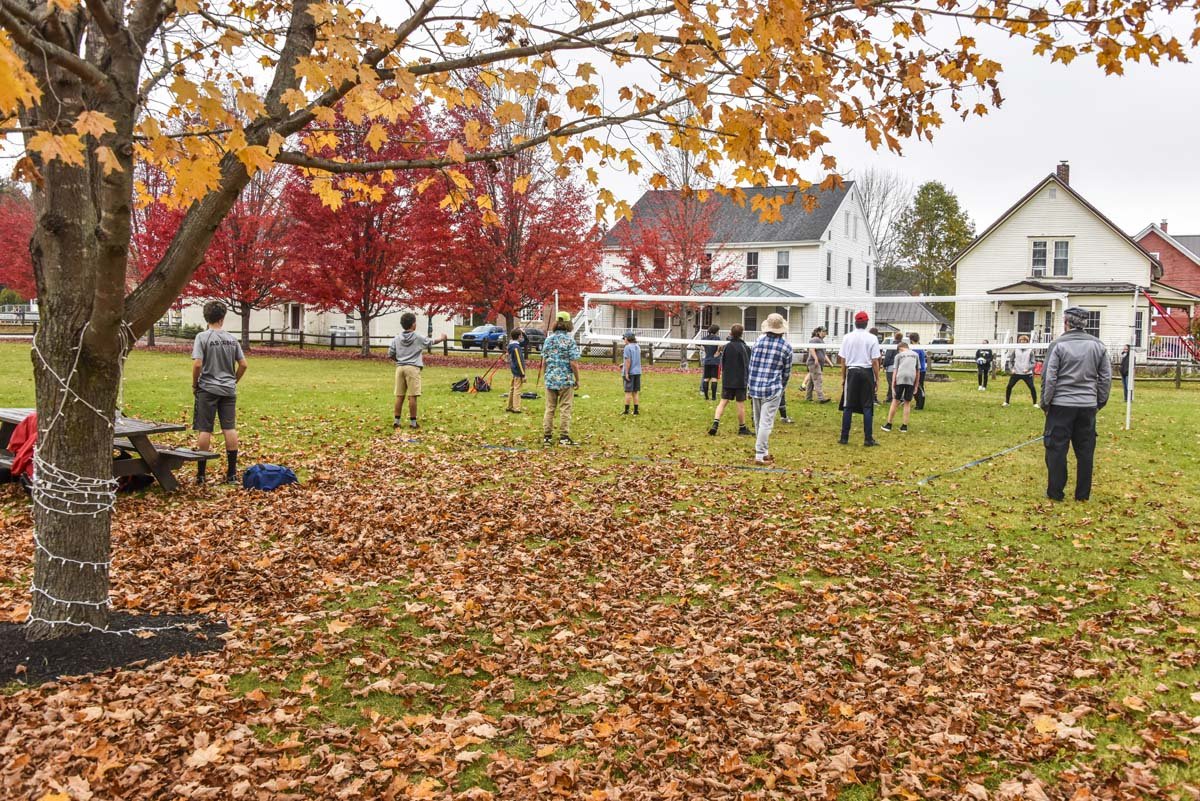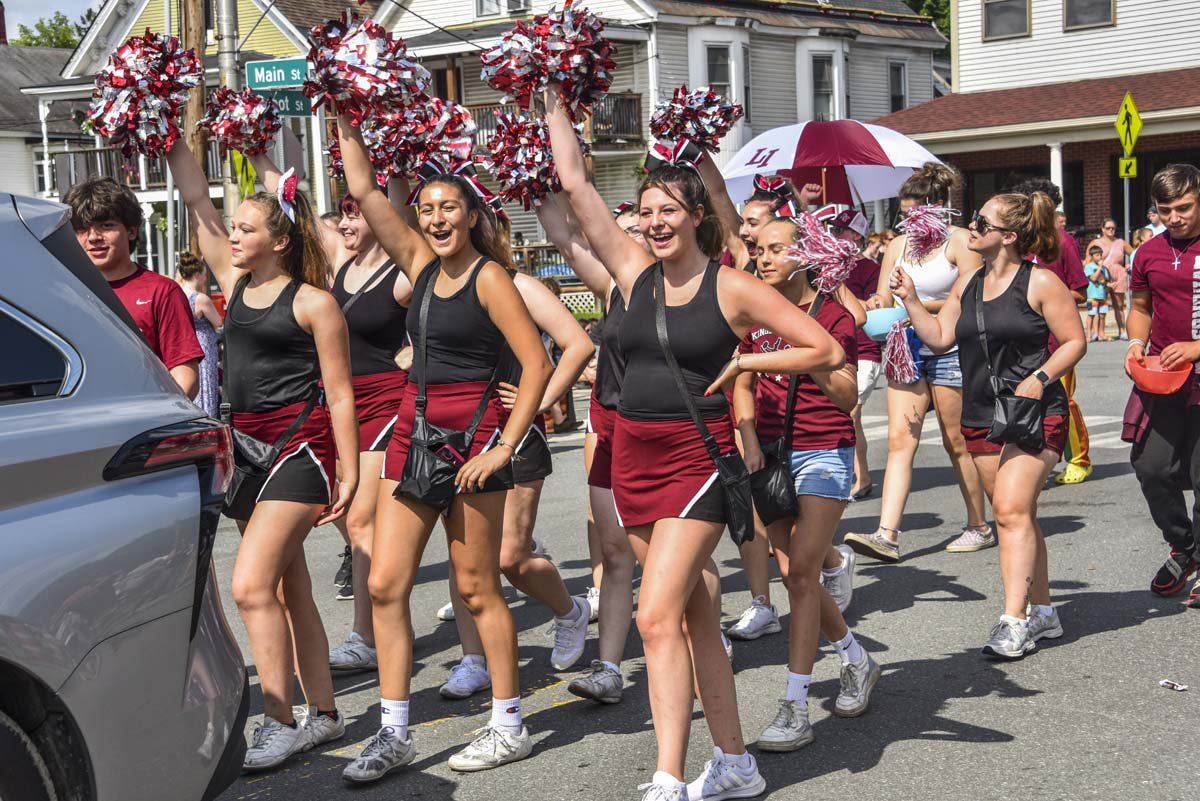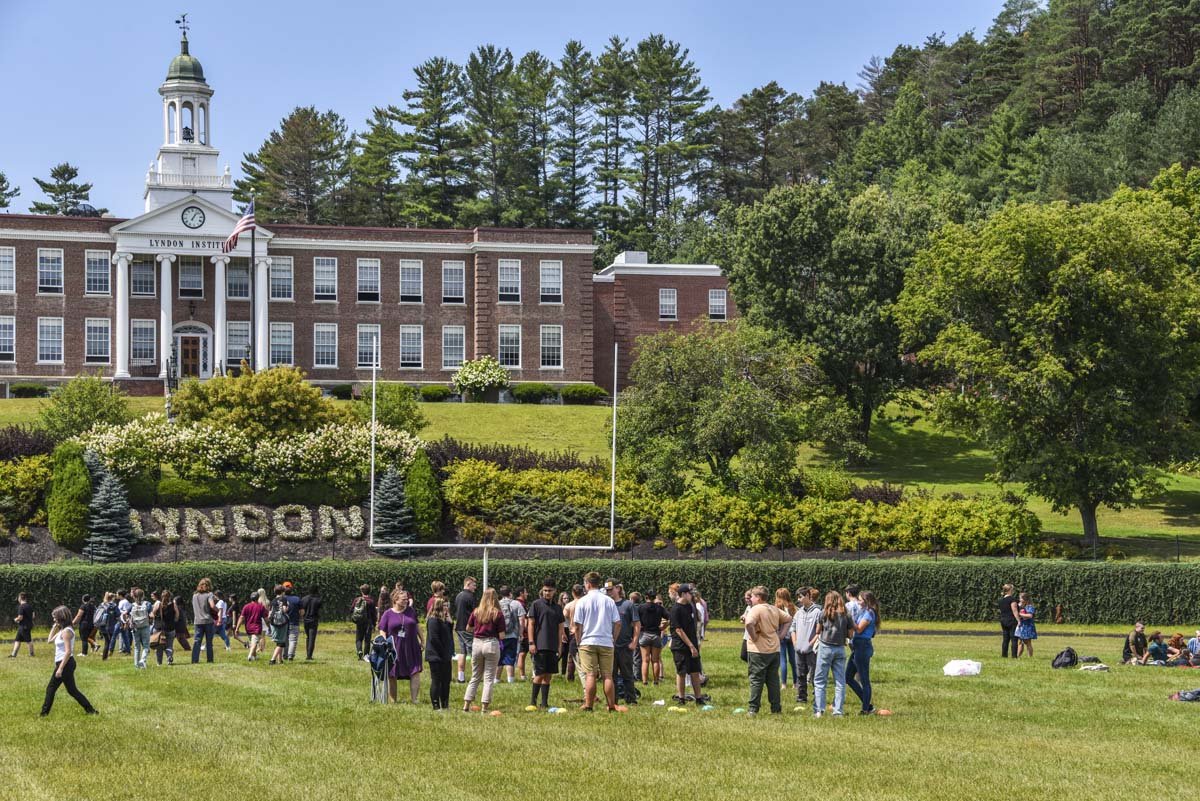- Our School
- Admissions
-
Academics
- Divisions and Faculty
- Commencement 2024
- January Term
- International Program (ESOL)
- College and Career Counseling
- Upward Bound
- Library/Monahan Academic Commons
- Career/Technical Education
- Lyndon Learning Collaborative
- Flexible Lyndon Institute Pathways (FLIP)
- Specialized Instruction
- Adult Continuing Education
- Lyndon Institute Course Catalog
- Student Services
- Arts
- Athletics
- Campus Life
- Support LI
- Alumni
« Back
LI Students Take a New Aircraft Design For a Virtual Spin
October 10th, 2023
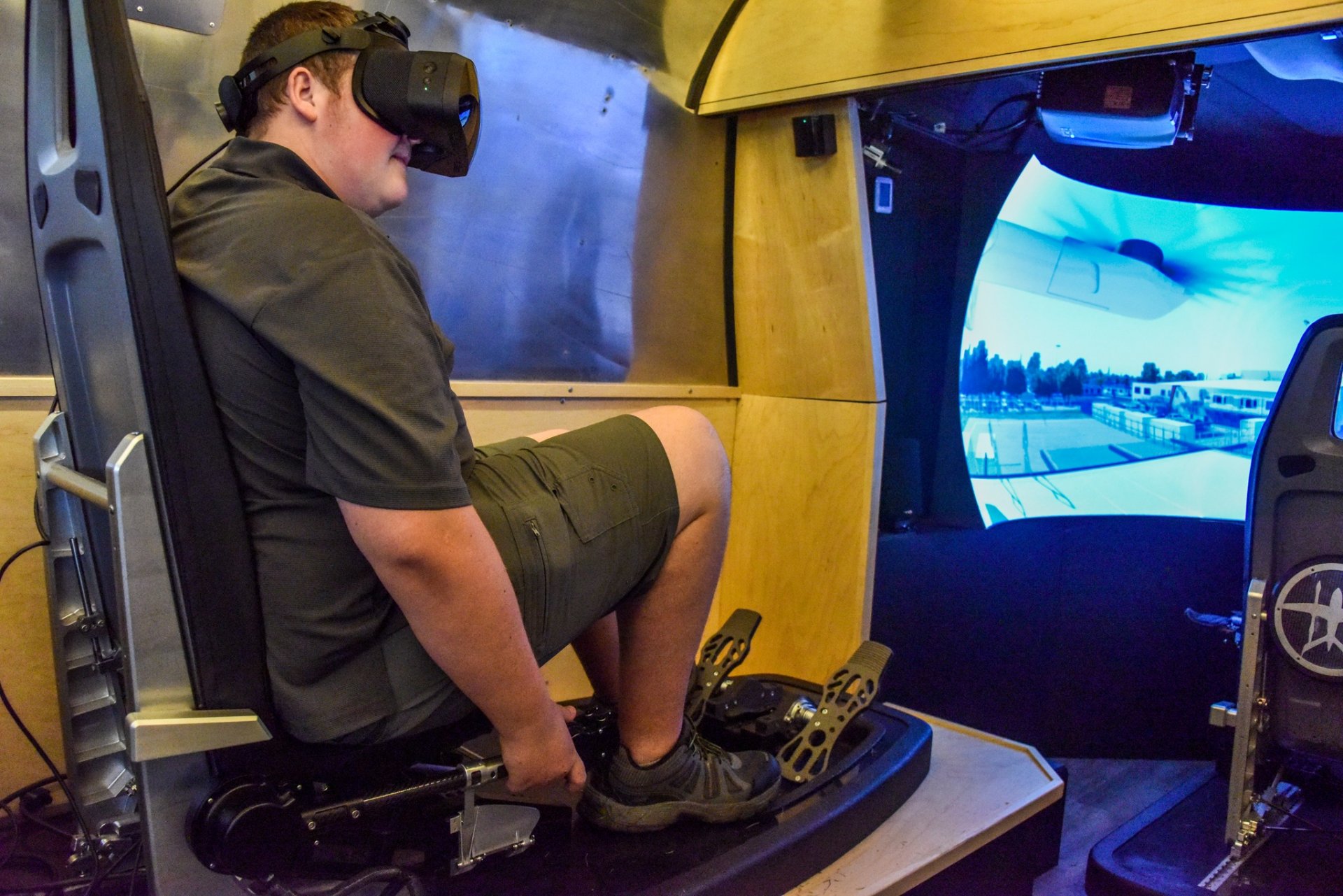
By David Stahler Jr.
The familiar silver bullet shape of the classic Airstream camper on Lyndon Institute’s Matty Green seems out of place from a distance, more at home at an RV park than a school campus, but drawing nearer one can see the awning out front isn’t shielding a retired couple from the rain but a high-tech electric motor prototype and an elaborate battery display. And the inside of the airstream features not the normal domestic layout but a pair of high-tech flight simulators featuring one of the most cutting edge airplane designs in the world.
A group of students is eagerly awaiting a chance to hop in one of the cockpits and take BETA Technologies’s new plane—affectionately named “Alia”—for a spin. On this rainy Wednesday, BETA is offering students two choices: a virtual reality headset option, complete with a flight chair fitted with a joystick and other controls, and a virtual cockpit similar to its VR companion but instead offering a completely immersive wraparound screen that encompasses the entire rounded end of the Airstream, a cockpit BETA has dubbed “The Thunderdome.” The students are happy enough to pop on the VR headset, but the Thunderdome—which beckons like a ride at the fair—is where the real action is at.
So what makes Alia so special? As the first viable lithium ion battery-powered airplane to enter the market (full production begins in two weeks), the silent craft is 100% carbon free. “Like an electric car, the plane’s engine offers an incredible amount of torque,” BETA engineer Evan Cahill explains. “Our design is rewriting the rulebook about what airplanes can do.”
The Alia comes in two versions—a traditional CTOL (conventional takeoff and landing) and a VTOL (vertical takeoff and landing) model. The CTOL’s engine is mounted in the rear of the plane, with its torque allowing for a shorter runway than a regular gas plane requires. But it’s the VTOL version—the one this simulator is showcasing—that really raises eyebrows. In addition to the rear engine, the wings also feature four horizontal propellers, as one would see on a typical drone, giving the craft the ability to take off and land like a helicopter and hover in place as needed. Both feature an elegant rear tail design that gives the plane its distinctive look, one that takes inspiration from nature’s own engineering.
“Our founder modeled the design after the Arctic tern’s tail, a bird that is capable of hovering without flapping its wings,” Cahill said.
Founded six years ago with 650 employees primarily based in the Burlington area, BETA Technologies is attempting to be the first successful commercial electric plane company, with a craft that currently boasts a 1000 pound payload and can travel 250 nautical miles on a $60 electric charge cost, a distance that would cost around $800 in fuel for a conventional plane. BETA initially plans to offer its craft to UPS and other delivery companies to help limit the need for gas trucks in congested areas, and eventually enter the civilian transportation market, offering quick, quiet, and inexpensive connections between hubs that require little infrastructure with its proprietary charging platforms.
What also becomes apparent with BETA’s simulator is how easy the VTOL craft is to fly. With even brief training on the VR sim, I was able to take off (virtually) from Burlington International Airport, take a quick cruise up to Colchester, and land back on the runway near BETA’s headquarters without much trouble. The controls are simple and intuitive.
LI students felt the same way.
“I found it very easy to fly,” said junior Anakin Percy, a self-described aviation fan. “It’s really stable, not too fast. It was really fun to try something new. I was impressed with how the yoke handled the craft’s yaw, and it was interesting to see how the VTOL worked.”
After a little bit of practice, Percy said the BETA team offered him a bigger challenge. “They put me out to sea. I got a chance to land on an aircraft carrier that was in constant motion. I nailed it on the first try!”
Sophomore Colin Ulrich also found Alia simple to control, though moving beyond Burlington International in the Thunderdome proved a little tougher. “I ended up crashing while trying to land on an oil rig,” he joked. “But to be fair, it was a really small platform. They told me that it would be hard.”
While a love for aviation drew Percy to the simulator, Ulrich was drawn by a different passion. “I just love new technology in general.” Something BETA embraces as one their core values.
Freshman Maia Boyer had a similar reaction. “I’ve always liked aeronautics and NASA,” she said. “My dad wanted to be a pilot when he was younger but never got a chance, so that got me interested, too. Basically, I love anything that pushes natural rules. Gravity keeps us on the ground, you know? But there are people out there who get an idea and say, ‘I can make that happen.’ I think the company has a really interesting concept.”
Boyer took Alia for a spin in the Thunderdome. “It was really immersive. I was trying hard not to crash, even though in the back of my mind I knew it wasn’t real. I actually felt a little motion sick at one point. But overall it made me feel kind of powerful to be flying it—it seemed even more simple than driving a car in some ways.”
Head of School Dr. Bloomfield invited the company to Lyndon Institute’s campus after meeting the company founder and CEO, native Vermonter Kyle Clark.
“I wanted to bring BETA to campus to get kids excited about the possibilities a company like this can offer. They hire all levels of workers, from conceptual engineers who have worked at companies like Tesla to employees directly involved in the manufacturing process. I also want our CTE students to think about how the skills they learn here in our vocational programs can set them up to go directly into the workforce at a company like BETA, one based in Vermont and intentionally designed to bring high-paying job opportunities to our state and maybe even someday our local community.”
LI’s new Career Tech Education (CTE) director, David Schilling, was also excited to welcome them. While principal at Danville High School last year, Schilling took 50 students to visit BETA’s facility in Burlington.
“It was so great to bring the Danville students to BETA last year, to show them a healthy corporate culture that proves you can do what you do well when you innovate together and work as a team. So I was excited to see LI students get a first-hand look at what the company is producing.”
Schilling hopes that this week’s visit will inspire Lyndon students to understand how high-level engineering careers can impact the world.
“It goes back to the company founder’s pure love for flight,” Schilling said. “That love is something that is now changing how we view flight.”
Schilling was especially happy to see students come out and be completely wowed by the simulator. “Anybody can strap on a headset and start flying in minutes. The engineers on hand helping the students say the planes fly exactly like the sim.”
What makes BETA’s visit to LI especially exciting to Schilling is the fact that the company has expressed interest in nearby Caledonia County Airport, just a few miles from campus up on Pudding Hill.
“As BETA looks to possibly develop a presence in the NEK, we want to see our students aligned with their vision of cutting edge technology that is innovative and forward looking.”
Schilling said that the BETA engineers offered their innovative spirit in another way once students were finished with the simulation. “We gave them a campus tour afterward, and they were quick to notice a few areas we could improve from a design standpoint, particularly in the True Building [which houses LI’s auto tech program] and the attic space of Vail Barn, even offering to have one of their teams provide some blueprint designs for a future renovation.”
It’s not hard to imagine that T.N. Vail, who built Vail Barn in the 19th century before going on to found AT&T, a technology company that helped transform the world, would be excited by a new generation of innovators helping improve LI’s campus on their way toward creating a cleaner, more efficient future in the skies.
Posted in the category Front Page.

